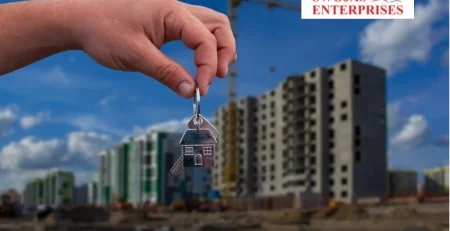Understanding RERA Guidelines for Under-Construction Projects
Admin20222024-10-14T06:38:00+00:00The Real Estate Regulatory Authority (RERA) was founded in India to enhance transparency, accountability, and efficiency in the real estate industry. RERA, which was introduced under the Real Estate (Regulation and Development) Act of 2016, intends to protect homebuyers’ rights while also fostering the expansion of the real estate business. Understanding RERA requirements for under-construction projects is critical for all stakeholders, particularly homebuyers, because these regulations ensure that their investments are safe and that developers use ethical techniques.
RERA’s key goals include protecting homeowners from deceptive activities, assuring timely project delivery, and requiring builders to give clear project information. Buyers can make educated judgements by understanding RERA requirements for under-construction projects, reducing the risks of their investments.
What Are Under-Construction Projects?
Under-construction projects are real estate developments that are currently being built but have not yet been completed. These projects could comprise residential complexes, commercial structures, or mixed-use developments. Under-construction projects include a recently built apartment complex, a shopping mall in the works and a housing society that is still in the planning stages.
Investing in under-construction properties carries a number of hazards. Common concerns include project delays, poor construction quality, and future modifications to project parameters. Thus, transparency and trust become critical in such ventures. RERA provides buyers with assurance that the project will be finished on schedule and in accordance with the agreed specifications.
Key RERA Guidelines for Under-Construction Projects
RERA guidelines for under-construction projects provide a framework that ensures developers meet specific standards and obligations. Here are the key provisions:
- RERA Project Registration: All residential projects with more than eight units or an area larger than 500 square meters must be registered with RERA. This registration ensures that developers are identified and held responsible for their projects.
- Requirements for project completion timelines: Developers are required to establish a precise schedule for project completion. This deadline must be followed, with fines levied for any delays.
- Financial safeguards: Under RERA, at least 70% of the monies obtained from buyers must be used entirely for project construction. This rule guarantees that funds are allocated properly and helps to prevent financial malfeasance.
- Key Penalties and Enforcement Mechanisms: RERA includes strict penalties for developers who fail to comply with project timelines or other guidelines. Non-compliance can lead to fines, imprisonment, or the cancellation of project registration.
4. Impact of RERA Guidelines on Homebuyers
RERA guidelines significantly enhance protection for homebuyers. Here’s how:
- Protection from Delays and Fraud: RERA empowers homebuyers by offering legal redress in the event of project delays or fraud. Buyers can file complaints with RERA against faulty developers to ensure that their concerns are addressed.
- Detailed Project Information: RERA requires developers to disclose all project data, including approvals, plans, and clearances. Buyers rely on transparency to assess the project’s validity and feasibility.
- Homebuyers’ Right to Know Project Status: Under RERA, buyers are entitled to obtain regular information on the project’s status. This includes details about construction progress, modifications to plans, and possession dates.
How RERA Improves Transparency in Real Estate Transactions
RERA significantly enhances transparency in the real estate sector through various mechanisms:
- Regular RERA site Updates: Developers must update the RERA site with project specifics on a regular basis so that buyers can obtain real-time information.
- Precise Communication of Possession Dates and Project Plans: RERA requirements require developers to offer precise timeframes for possession and any potential modifications in project plans, reducing ambiguity for buyers.
- Accountability: RERA keeps developers accountable for timely project delivery, requiring them to maintain high levels of communication and transparency with homeowners.
Steps Homebuyers Should Take Before Investing in an Under-Construction Project
Before investing in an under-construction project, homebuyers should take several important steps:
- Verifying RERA Registration: Check the RERA website to ensure that the project has been registered. This verification is required to guarantee compliance with RERA rules for under-construction projects.
- Reviewing the Builder’s Previous Track Record: Examine the developer’s track record, focussing on past projects and RERA compliance. A professional builder will have a track record of completing projects on schedule.
- Read the fine print: Examine all documentation, including allocation letters, builder-buyer agreements, and other legal paperwork. Understanding these agreements is critical for determining your rights and obligations.
- Importance of Legal Due Diligence: Hire a legal professional to conduct due diligence on the project and developer. This stage can help uncover any potential legal difficulties that may impact the investment.
7. Challenges and Limitations of RERA for Under-Construction Projects
While RERA offers many benefits, it also has challenges and limitations:
- Developers may try to exploit gaps in RERA laws or misinterpret guidelines to their advantage, potentially damaging buyers.
- RERA is a central act, but its implementation differs by state, resulting in variations in enforcement. This variation may confuse homebuyers and impede protection measures.
- How Buyers Can Protect themselves Despite Limitations: Homebuyers should be alert and undertake extensive research. Keeping up with RERA developments and hiring legal advice might give an extra degree of safety.
The Future of Under-Construction Projects Post-RERA
The introduction of RERA has heralded a positive outlook for real estate investments, The implementation of RERA has hailed a bright future for real estate investments, particularly in under-construction developments. Buyers can have greater confidence in their investments because to stronger restrictions and increased responsibility.
According to real estate market predictions, RERA enforcement will boost investor confidence, benefiting both homebuyers and developers in the end. RERA not only promotes transparency in real estate transactions, but also encourages developers to maintain high project delivery standards.
To summarise, following RERA requirements for under-construction projects is critical for homebuyers seeking to navigate the real estate market responsibly. With RERA in place, both buyers and developers can benefit from a more regulated and transparent approach to real estate transactions, paving the path for a more resilient and reliable market.
Connect with us at Swojas Enterprises for RERA-compliant projects!











